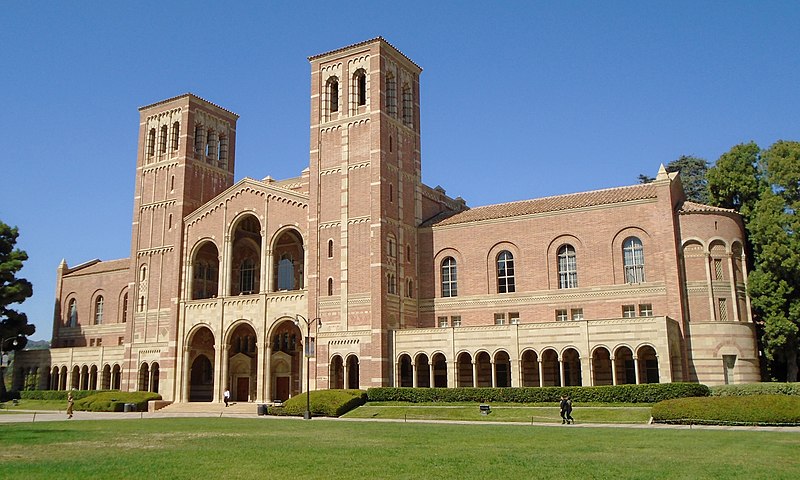By Christin Nielsen
LOS ANGELES (Legal Newsline) – A California court has ordered the University of California Los Angeles (UCLA) to release records showing academics “going after climate denialism” in coordination with state and local prosecutors.
The decision by the Superior Court of California for the County of Los Angeles was made following a petition for a hearing submitted in January by Government Accountability and Oversight (GAO), a government watchdog group. The filings followed a previous Public Records Act request originally submitted in November 2019.
The suit seeks to compel the university to hand over documents believed to be in the public’s interest regarding efforts by UCLA professors to pursue opponents of their climate agenda.
The final ruling in the case, issued by Judge Mary H. Strobel on April 7, calls for The Regents of the University of California (“Regents”) to hand over copies of hundreds of pages of documents requested by GAO.
The order comes after GAO accused UCLA of “prolonged, deliberate and unjustified failure to timely respond to the CRPA Requests” following UCLA’s ongoing refusal to release the requested documents.
In a trial brief filing, GAO said that in November 2019, they requested records “concerning the University’s work with private outside parties including law enforcement to develop theories of litigation against, and pursue as targets of investigation, perceived opponents of a political and policy agenda shared by these outside parties and certain faculty, and the University’s Emmett Institute on Climate Change and the Environment (the ‘Emmett Center’) for which they work.”
The documents in question include communications between two individuals who, according to public records, are responsible for pushing the climate litigation efforts at UCLA, a public institution.
In the court’s final decision, Strobel ordered the Regents to release emails they tried to conceal by arguing that the messages were sent in a “personal” or “private” capacity.
While UCLA attempted to categorize many of the requested documents as “not public records,” the court stated that, per a previous filing, “the definition of ‘public records’ is ‘broad and intended to cover every conceivable kind of record that is involved in the governmental process.'”
Also among the records the university claimed were not public were communications involving the Union of Concerned Scientists – a group that led a campaign to recruit state attorneys general to pursue those deemed to be participating in “climate denialism.”
Last month, the Regents released a log with additional information about the hidden emails in response to a court order. The log showed that some records UCLA classified as “not public” included communications about efforts by staff to recruit state attorneys general into a campaign to pursue so-called climate deniers.
The documents also reveal that one of the faculty members, Ann Carlson, went on leave to promote a climate agenda within the Biden administration.
“I have been appointed by the Biden administration to serve as the chief counsel for the National Highway, Traffic Safety Administration,” Carlson explained in an email. “The agency is in charge of climate standards for cars and trucks, which is why they have recruited me for the position… [s]o, I will be taking a leave from UCLA.”
In one of its attempts to justify withholding the documents, the Regents argued that the communications should remain concealed because “at least one email” within a compilation of records contained private information about one of the university’s donors.
Strobel concluded, however, that the Regents “should have identified the specific email” in question and could not use that claim as justification for concealing a slew of records.
“More importantly, Carlson provides no details about the one email… that explicitly identified a target potential donor. For instance, she does not state that the discussion included any sensitive or embarrassing statements about the targeted individual,” the ruling stated.
The court also agreed with GAO’s argument that the records relating to the university’s fundraising practices are indeed in the interest of the public.
“There is a general public interest in public records related to such fundraising at a public university and the Emmett Institute,” Strobel said in the decision.
As previously reported by Legal Newsline, the original PRA request was initiated after an agenda from a “secret meeting” at Harvard University was released by the Vermont Office of the Attorney General. Documents show that UCLA faculty participated in the meeting alongside climate activists, potential funders and law enforcement officials.
The meeting provided details about how the attendees could participate in state action against traditional “fossil fuel” energy companies.
The UCLA case has notable similarities to several others in which arrangements existed between academics, climate pressure groups and politically-motivated campaigns to pursue major carbon producers.
The GAO’s filings in the case also brought to light new information about the Enron origins of the climate industry and detailed a lengthy history between academics and climate pressure groups.
“Enron was the early ringleader of the global warming industry,” Christopher Horner, attorney and former senior fellow at the Competitive Enterprise Institute, wrote in his declaration in the case.
Horner explained that Enron participated in meetings with climate pressure groups in Washington D.C and was working on a campaign “to ensure U.S participation in a ‘global warming’ treaty that several months later would be called the Kyoto Protocol.”
The Horner declaration also argues Enron fueled the development of the climate industry with the intent of profiting off of related mandates.
Per the court’s ruling, UCLA is required to hand over the required documents within fifteen days of the final order.
UCLA declined to comment on this story when previously contacted by Legal Newsline. “We decline to comment beyond what is in our court filings,” spokesman Bill Kisliuk said.
Christin Nielsen writes for Legal Newsline.
This article was originally published by Legal Newsline and is republished with permission.
